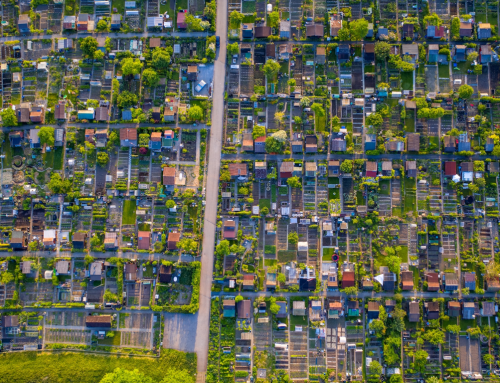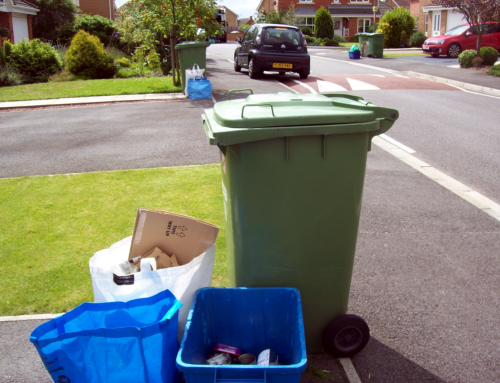by Phillip Ward
Defra is reviewing WRAP – again. Although styled a funding review in reality it goes much wider.
The consultation paper acknowledges WRAP’s past achievements but goes on to ask a number of questions about priorities and the WRAP business model. Essentially these cover:
- whether there are remaining market failures which the business community won’t deal with for itself;
- the best mechanisms for dealing with any failures;
- what WRAP’s priorities should be; and
- whether those who benefit from WRAP’s activities should contribute to the costs.
These are not unreasonable questions. They have been asked several times before in earlier reviews and by WRAP in its own business planning processes. Each time they have led to adjustments to WRAP’s objectives and priorities. Those have moved a long way from its origins in creating markets for recycled materials to the current focus on Zero Waste and the circular economy.
Old school WRAP
But there is one question the consultation paper does not raise. It is not about market failures, but about the capacity of government. This was a key issue when the idea of WRAP first emerged during the preparation of Waste Strategy 2000. At that time, the forerunner to Defra had five people working on recycling and – apart from the estimable Ray Georgeson who was then on loan from Waste Watch – no practical experience of recycling processes or markets.
Clearly the huge changes required to meet the Landfill Directive were going to need additional resources, in central government as well as in local authorities and the waste industry. Central government was going through one of its periodic head count freezes and in any case the addition of more transient generalist civil servants would not have provided the skills or the commitment needed.
At the time, there was a lot of interest in the pioneering work of Seattle’s Clean Washington Centre in developing markets for recycled materials. Also government was transferring delivery of many of its programmes to arms length agencies or not for profit companies like the Energy Saving Trust. The idea of a WRAP grew from this and a proposal was included in the White Paper of May 2000. The objective was to create a stable body of expertise that could bring disparate interests together, address market failures and produce real world changes that were both significant and quantifiable. Most observers, including Defra, seem to accept that this objective has been achieved.
WRAP to the future
But a lot has changed in 13 years. Is there still a need for WRAP? I don’t have any doubt there is. Central government still lacks the capacity to progress resource efficiency directly. Most people that I speak to who have regular dealings with Defra report shortages of people, and of knowledge, as well as constant churn in the individuals they have to deal with.
At the same time, the issues to be addressed are significantly harder. Generating markets for recycled materials involved working with reasonably easily defined groups of organisations, and straightforward levers such as supporting investment in reprocessing capacity. Waste prevention, reuse and the circular economy are intrinsically harder to address, with more participants on a European and global scale, less obvious interventions, and outcomes that are harder to assess.

No shrinking violet: WRAP CEO Liz Goodwin has many stakeholders to satisfy. Photo by Tom Reynolds (Creative Commons), via Flickr
Nevertheless, WRAP has made good progress. It has invested in understanding behaviour change – well ahead of the Cabinet Office’s Nudge Unit – through programmes like Recycle Now and Love Food Hate Waste. It has also established a reputation for providing a neutral space for groups, who would normally be competitors, to come together legitimately to pursue broader objectives like the Courtauld Commitment. The third installment of that has just been launched with 45 signatories, including the main supermarket groups and many of the big name branded suppliers.
My guess is that officials at Defra understand the value that WRAP can bring and hopefully they will be allowed to establish a regime in which central government focuses on strategy and international matters, within which WRAP develops and delivers agreed programmes. Three years ago I would have been more pessimistic, as the new government clamped down on anyone other than themselves having a say about anything that could be described as “policy”. WRAP was allowed to say very little – in England – and even factual reports were massively delayed while political advisers crawled over them. Conditions now seem more relaxed and WRAP is once again being allowed to speak about the key issues and report the results of its studies and research. It would be good if one of the outcomes of the review were a specific commitment to free and timely publication of its findings.
Priority signals
Finance, which this review is nominally about, will be important. Defra is outside the ring fence for the spending review. It is beset with pressures on farming, badgers, tree diseases and air quality. Money will be tight. WRAP’s grant from Defra has already been massively reduced and Defra is now a minority stakeholder as the more ambitious Scots and Welsh develop their own requirements, like Resource Efficient Scotland. To some extent, the reduction in Defra funding is offset by the change in emphasis from supporting capital investment to the more collaborative work on the circular economy. But further reductions would be a concern not least – as Defra recognises – because of the knock on implications for the programmes in the other governments.
Everyone will have their own view on what WRAP’s priorities going forward should be. So long as Defra remains a major funder and has a strategy to be delivered, one of WRAP’s priorities must be to develop effective programmes to advance Defra’s aims while finding as much synergy as possible with the programmes of the other governments. The quid pro quo from Defra has to be a recognition that they cannot demand more than they are prepared to pay for and to recognise the right of other funders and supporters to make demands which Defra will have to live with.
I hope as many people as possible will respond to the consultation. While all should set out their own priorities, it is important that they should point out that WRAP is an important supplement to the resources available to Government, that it has a track record of giving very good value for money and that it is at its most valuable when it is allowed to discover and share openly the information which others can draw on to make informed decisions. Driving this message home to the new generation of Defra officials can’t hurt, and may help avert the risk of a narrow decision which hamstrings one of the institutions which can help both government and business to make good decisions and change behaviours.






Leave A Comment